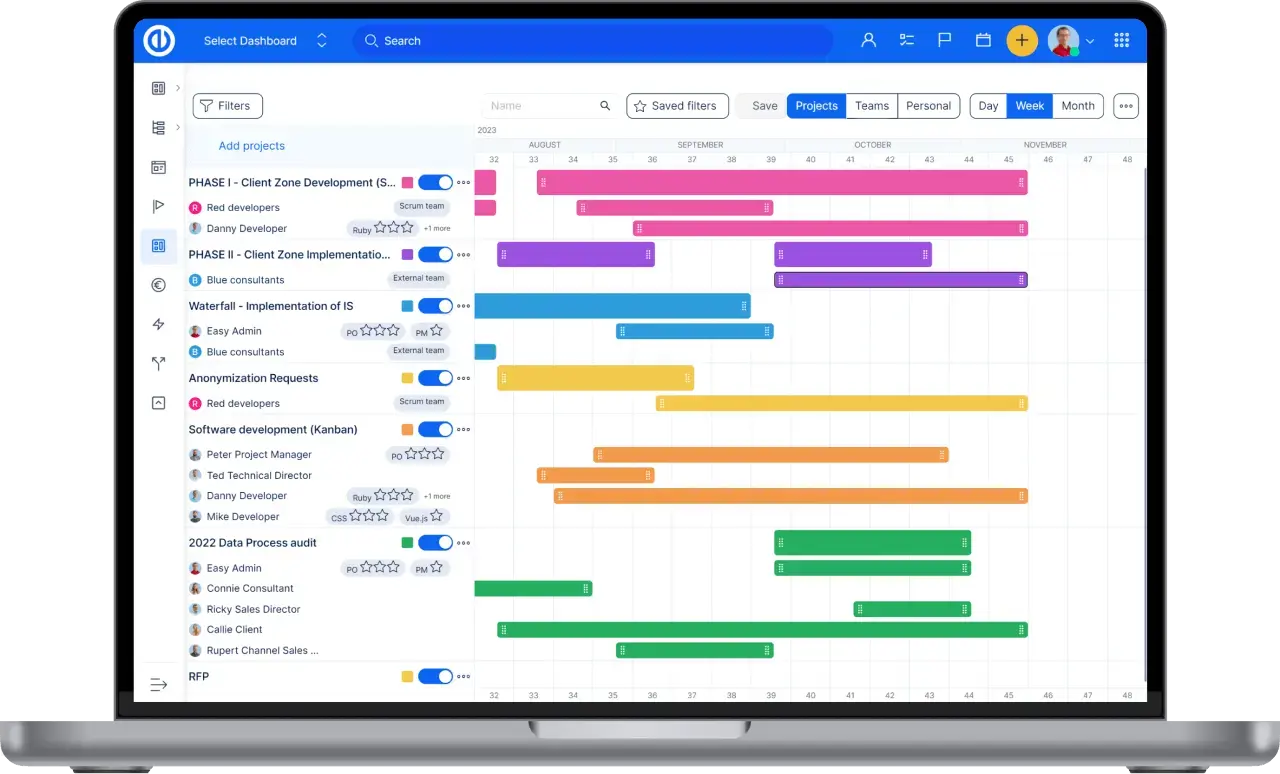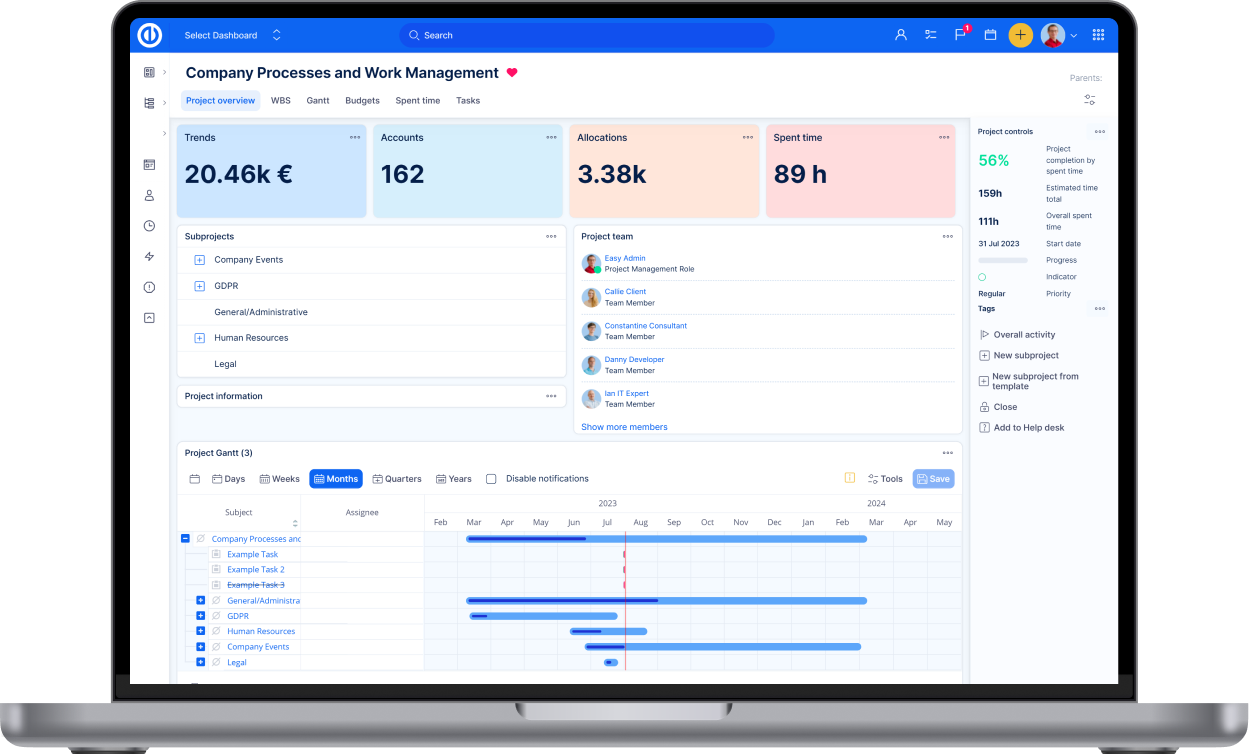Are You Managing a New Project? Answer These 11 Questions Before Its Own Start

1. What is the objective of the project?
This question has more interpretations, the first interpretation is purely practical. What should be the final outcome of the project? In the majority of cases, there is not only one outcome, but a whole number of deliverables spread out in several phases. As an answer to the first question, a simple list of deliverables is sufficient. And the deliverables expected to be delivered serve as a Checklist throughout the project.
2. What is the real objective of the project?
The second interpretation is somewhat more complicated, but also more important. The objective of the project is not the outcome itself, but the impact that the outcome should have. Are you designing a new website? What does the client expect from the website? How will you measure success? What vision should you follow? Find answers to these questions with your team, and keep it in memory throughout the entire project.
3. What is NOT the objective of the project?
As important as setting the objectives of the project, is also a clarification of what will NOT be the objective of the project. After clarifying the outputs, it is advisable to think about each segment of the project separately and to cross-check with the counterparty, who is responsible for the delivery of each segment of the project. Similarly, it is advisable to discuss with the client his expectation concerning the impact of the project and try to eliminate the unrealistic expectations. This is the best way how to avoid possible disagreements and unplanned extra work.
4. How much time do we have?
Your project is likely to have a deadline set in advance. And even if you've certainly accomplished a number of projects where deadlines have been repeatedly postponed, you should still take the deadlines seriously. Deadlines are the key to understanding the timeline of the project and hence the working framework of the project. Setting up a well-thought deadline will help you choose a suitable strategy for managing the project. Although some deadlines are rather flexible, it is necessary to set at least internal deadlines, ideally including sub-steps, which allows you to track progress with your team.
5. Who is the real client?
Those of you who have previously delivered a project to a larger company, have surely experienced a situation where people you never heard of before started commenting on the aspects and the form of the deliverables during the final phase of the project. This is certainly not wrong, mostly it is a matter of internal politics and for larger companies, it is simply a common procedure. In an optimal case, however, you want to avoid situations where someone asks for major changes a week before the end of the project. Clarify with the counterparty at the very start of the project, who should be included in the decision-making process and try to limit the number of participants.
6. Who is your contact person?
Besides others, it is necessary to clarify with the counterparty who is the liaison officer. Most probably, this will be the person with whom you are in continuous project communication. However, it is important to check whether, in the case of an emergency and an ad hoc decision, it is this person who is responsible for them. And when you are clarifying these points, you should also make clear which form of communication (e-mail, WhatsApp, calls) this person prefers.
7. Who works on the project?
This should be ideally clear. If you are already familiar with project management, you can solve this question easily by yourself. It may be more complicated if you are joining an already started project with a team you don´t know. But even here you can easily catch up with the others. What should you focus primarily on? You should focus on the designation of each person, whether they have the necessary skills, experience, and enough time. Subsequently, do allocate extra resources and support if you feel that not enough skills/experience/time is being allocated.
8. Who is the audience?
When managing a project, it can easily happen that we tend to satisfy the wishes of the client or other counterparty at any price. But their wishes do not always meet the needs of the target audience and fulfilling these needs will not lead to the achievement of the objectives of the project, as was set in question number 2. Therefore, when delivering a project, don't forget, you or your team, the target audience. And even if it sometimes feels like fighting windmills, do ask your client the same question.
9. What do we need?
Do you and your team have all the necessary tools available? Even this factor needs to be thought through and if necessary, the needed technology should be ensured. Everything starts with the right project management software to the beta testing facility. Do you have everything available, or will you need something to purchase for this occasion?
10. Has anybody ever done this before?
We are talking here in both a narrower and broader sense. Does your project result in being something that the company previously did? Do the competing organizations have something similar to your product/project? Is there such a thing in another market? Or on another continent? Look for inspiration, templates, and samples wherever you can. If you want to innovate, it's amazing, but there's no need to reinvent the bike.
11. What is in our way?
The problem with obstacles is that it is mostly impossible to predict them. But before you go into the next project, try it at least as a thought exercise. Think about past projects and think about what might go wrong this time and what might cause us to lose the way to successful completion. And think about who will be responsible for solving such problems, and how should he address them.
In the end the latest recommendation, these 11 questions need to be asked at the beginning of the project. But as various aspects of the project can be suddenly changed, is the advised to form questions repeatedly and update them if the situation so requests.

All-in-one software for a modern project manager? Easy.
Get all powerful tools for perfect project planning, management, and control in one software.
